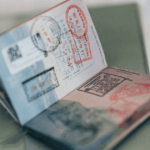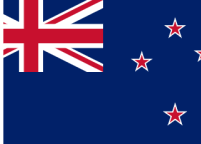Definitions:
- Deportation: Individuals unlawfully in New Zealand served with a deportation order or temporary visa holders liable for deportation.
- Self-Deportation: Individuals unlawfully present who leave voluntarily without Ministry costs after being eligible for a deportation order but not served with one.
- Voluntary Departure: Individuals unlawfully present or temporary visa holders who leave voluntarily before being eligible for a deportation order.
Deportation Statistics
Table 1: Breakdown of Deportations Over the Last Six Financial Years
Financial Year | Deportation | Self-Deportation | Voluntary Departure | Total |
2018/2019 | 454 | 586 | 865 | 1905 |
2019/2020 | 360 | 360 | 548 | 1268 |
2020/2021 | 251 | 178 | 271 | 700 |
2021/2022 | 154 | 162 | 222 | 538 |
2022/2023 | 224 | 246 | 242 | 712 |
2023/2024 | 203 | 193 | 219 | 615 |
Note: The number of deportations dropped significantly in 2020-21 and 2021-22 due to the COVID-19 pandemic.
Deportation Procedures
Immigration New Zealand (INZ) issues Deportation Liability Notices and Deportation Orders as needed for individuals who may be deported due to unlawful presence, criminal activity, or other public interest factors.
- Voluntary Departure: Many individuals opt to leave voluntarily upon being contacted. This does not bar future entry into New Zealand, provided they secure the necessary visa, which depends on their specific circumstances.
- Non-Cooperation: Individuals who do not cooperate with INZ may face enforced deportation, similar to higher-priority deportations. They could be banned from returning for up to five years and must repay any deportation-related costs.
- Lawful Residents: Those who are lawfully present but face deportation due to visa condition breaches or character issues may also face a ban of up to five years or even a permanent ban and must repay any deportation costs.
INZ does not deport New Zealand citizens returning to the country, as they have an inherent right to enter.
Deportation Priorities
INZ prioritizes compliance visits based on set criteria, focusing primarily on:
- National security threats.
- Individuals about to be released from prison.
- Individuals involved in criminal conduct.
- Individuals who have exhausted all legal avenues to remain in New Zealand, including non-genuine refugees.
INZ collaborates with the Department of Corrections and other agencies to manage cases involving imprisoned individuals liable for deportation upon release.
Deportation of Non-Residents
Individuals who overstay their visas become unlawfully present and are automatically liable for deportation. Once appeal rights have expired, INZ may issue a Deportation Order.
- Deportation Liability Notice (DLN): This notice is issued to individuals who are lawfully present but breach visa conditions or have character issues. It activates their appeal rights.
- Appeal Rights: Typically, individuals have 42 days to appeal to the Immigration and Protection Tribunal (IPT) on humanitarian grounds. They can only be deported during this period if they waive their appeal rights.
Deportation of Residents
New Zealand residents may be deported under section 161 of the Immigration Act 2009 if convicted of a criminal offence. The liability depends on when they first obtained a residence visa, the date of the offence, and the potential sentence. There are three main tiers:
- First Tier: Offenses committed while unlawfully present, holding a temporary visa, or within two years of obtaining residence. The Court must have the power to impose a prison term of three months or more.
- Second Tier: Offenses committed within five years of obtaining residence. The Court must have the power to impose a prison term of two years or more.
- Third Tier: Offenses committed within ten years of obtaining residence. The Court must impose a prison term of five years or more.
Residents may also be deported for immigration fraud, such as providing false information in a visa application or if adverse character information surfaces.
Overstayed Visas
In 2017, approximately 14,000 migrants were estimated to be unlawfully present in New Zealand. Border movement inconsistencies and historical data entry issues influence data accuracy. Most overstayers are aged 25-64, with a significant number previously holding visitor visas. Pacific nationals constitute about a third of the total estimate.
Table 2: Top 10 Nationalities of Overstayers
Rank | Country | Estimate |
1 | Tonga | 2,498 |
2 | Samoa | 1,549 |
3 | China | 1,529 |
4 | India | 1,310 |
5 | Malaysia | 790 |
6 | Great Britain | 589 |
7 | Fiji | 434 |
8 | Tuvalu | 358 |
9 | South Korea | 323 |
10 | Thailand | 184 |
– | Other | 4,331 |
– | Total | 13,895 |
How Immigrants Can Avoid Deportation
Immigrants facing the risk of deportation in New Zealand have several options to avoid deportation, including applying for a visa under Section 61 (Ministerial Intervention). Here are the main options:
1. Section 61
- Application under Section 61: If an individual becomes unlawfully present in New Zealand, they may apply for a visa under Section 61 of the Immigration Act 2009.
- Eligibility and Process: Section 61 applications are considered on a case-by-case basis and are at the discretion of the Minister of Immigration. Applicants should provide compelling reasons for why they should be granted a visa despite their unlawful status.
- Factors Considered: Factors that may be considered include humanitarian grounds, significant ties to New Zealand, or any exceptional circumstances that justify granting a visa.
2. Appeal to the Immigration and Protection Tribunal (IPT)
- Appealing Deportation Orders: Individuals served with a Deportation Liability Notice (DLN) or Deportation Order can appeal to the Immigration and Protection Tribunal (IPT) on humanitarian grounds.
- Time Frame: Generally, individuals have 42 days from the date they become liable for deportation to appeal. They can only be deported during this period if they waive their appeal rights.
- Humanitarian Grounds: The IPT considers factors such as the individual’s ties to New Zealand, the impact of deportation on their family, and any other humanitarian circumstances.
3. Apply for a Visa Extension or Variation of Conditions
- Visa Extension: Before a visa expires, individuals can apply for an extension if they need more time in New Zealand. This must be done before the visa expires to avoid becoming unlawfully present.
- Variation of Conditions: If circumstances change, individuals can apply for a variation of their visa conditions. This may include changing the type of work they are allowed to do or extending the duration of their stay for specific reasons.
4. Lodge a New Visa Application
- New Visa Applications: If an individual is about to become unlawfully present, they can apply for a new visa that better suits their circumstances. This could be a different type of visa than they currently hold.
- Compliance with Eligibility Criteria: Ensure all eligibility criteria are met for the new visa category. Providing comprehensive and accurate information increases the chances of approval.
5. Seek Legal Advice
- Consult a Licensed Immigration Adviser or Lawyer: Professional advice can help individuals understand their options and the best course of action based on their situation.
- Legal Representation: Legal representation can be particularly beneficial during appeals or when making complex visa applications.
6. Voluntary Departure
- Voluntary Departure: If deportation seems inevitable, opting for voluntary departure can be a more favourable option. It can reduce the likelihood of facing long-term bans on re-entering New Zealand.
- Future Visa Applications: Voluntarily departing New Zealand may positively influence future visa applications, demonstrating a willingness to comply with immigration rules.
7. Contact Licensed Immigration Advisers and Lawyers
If you are facing deportation or have questions about your immigration status, it is crucial to seek professional advice. Licensed immigration advisers and lawyers can provide expert guidance tailored to your situation. They can help you understand your options, prepare necessary documents, and represent you in appeals or visa applications.
- Find a Licensed Immigration Adviser: The Immigration Advisers Authority (IAA) website allows you to search for licensed immigration advisers. Ensure that the adviser is appropriately licensed and has a good track record.
- Consult an Immigration Lawyer: Immigration lawyers specialize in complex cases and can offer legal representation in tribunals and courts. They can provide in-depth advice and support throughout your immigration process.
Taking prompt action and seeking professional assistance can significantly improve your chances of avoiding deportation and securing your future in New Zealand.
Reference:
https://www.immigration.govt.nz/
About ICL Immigration
ICL Immigration, based in Auckland, is a well-established licensed immigration adviser and consultant with over 20 years of experience and a remarkable 97% approval rate. We’ve helped over 1,000 immigrants realise their New Zealand settlement dreams. We specialise in complex immigration cases, including Section 61 applications, Ministerial Interventions, visa overstays, and deportation issues.
Our services encompass student, residency, work visas, and business-related services like employer accreditation. We provide expert guidance and personalised solutions to individuals and businesses, ensuring successful navigation of New Zealand’s immigration landscape.














